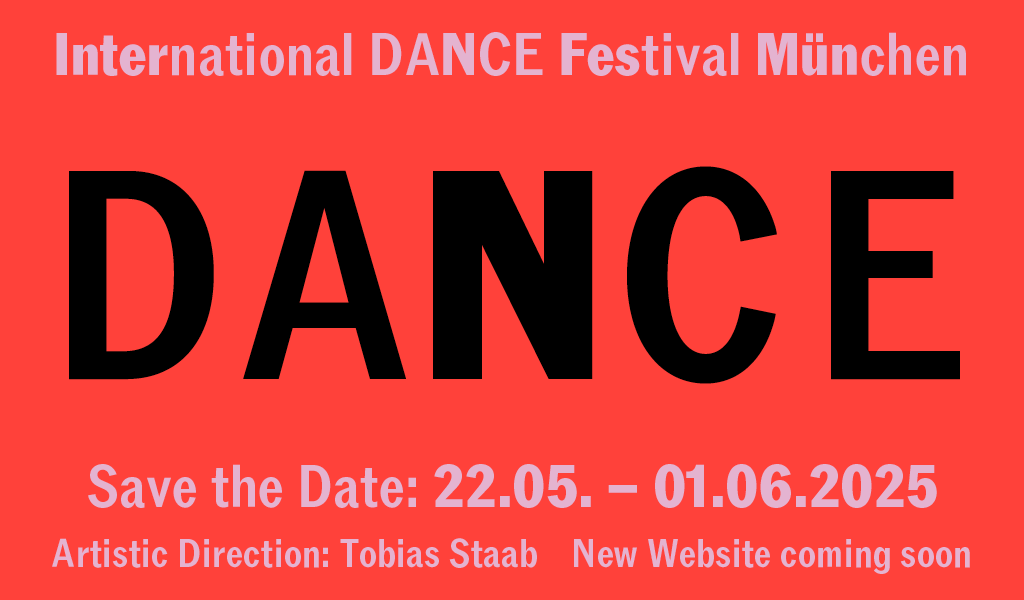Magazine #3: When the night has reached its deepest point...
A work about the war in Ukraine: Every Minute Motherland by Maciej Kuźmiński and the accompanying documentary Fragments of Resilience by Anna Semenova
By Torben Ibs
It is the work of the hour. Every Minute Motherland by the Polish choreographer Maciej Kuźmiński is a piece about Ukraine, or rather about leaving Ukraine after the Russian attack in February last year; the piece will be danced by a company with Polish and Ukrainian dancers. The war as an incision that throws people off track. Disrupted biographies, which come together here in exile and on the stage in order to search together for what is missing. What was lost. What the status is.
The title refers to this condition of enduring grief and insecurity. Thinking about their country they had to flee, about the people they left behind eats away at them every single minute. Approximately eight million Ukrainians have fled to Poland, around 1.5 million are still living in Germany’s neighboring country. Four of them will now be on the stage in Every Minute Motherland.
Choreographer Kuźmiński created the company in the summer of 2022 together with the Ukrainian dance journalist Polina Bulat, who had also fled the country. As producer of the work, he cast four Ukrainian dancers and brought them together with his Polish company. Actually, he had planned to update his work After Before, which he created during the refugee crisis in 2016. But this here was different. The uncertainty was huge, the emotional wounds were still fresh and everything so close. For him, the dance was without an alternative now. At first in the studio in Lodz, then in the little Polish village Dabrova, more or less as an exile in an exile, the group, recently brought together, worked together this past summer for five weeks to get to the bottom of the pain.
The result is not a therapy or even a coping with trauma, but rather a display of the wounds. The dancers take their pain, their fears, and their hardships and transform them into dance. It isn't a journey to the front, but rather images of loss and the holes that rip open when you must leave and you don't want to. Memories are conjured up, memories of music, of songs, of stories, but at the same time all of this remains untouchable, hidden behind a veil – the fog of war. Every Minute Motherland forgoes concrete images and situations, instead it creates ambiguous metaphors for what goes on inside a person when the future may not disappear but plans for the future are seen as being unaccomplishable. In its deepest core it is a meditation on the pain the war has wreaked and is wreaking, even in the bodies that are not on the very frontlines, forced to defy the Russian artillery or the Iranian drones. Dark, but full of hope. When night has reached its deepest point, daylight is around the corner.
At the same time, this piece is also a political statement. A sign of life from Ukrainian culture, which doesn't even allow itself to be dispersed into invisibility in exile, but rather uses spaces, displays itself, and simultaneously doesn't allow itself to be hitched to the huge wagon of politics. For it isn't about this, it is about people and their paths, if not the Ukrainian national identity that is being threatened – this cannot be denied. Kuźmiński also resists presenting this piece as being purely political. He is interested in how one carries on, in dance as a survival strategy. For this reason, he also scrapped all of his plans and made an offer to the Ukrainian dancers and then worked with them. "I am amazed how many movements made it into the production that are not at all from me," he says.
The music is consciously set on alienations and the processing of motifs. Only once can the popular version of a Ukrainian folksong be heard, there are absolutely no platitudes that gelatinize complexities. Even the costumes are appropriately simple and vague. The bodies should speak for themselves and express themselves. "It doesn't matter how fucked up this world is. We are still dancers."
This is what he says in the documentary Fragments of Resilience. The Ukrainian director Anna Semenova accompanied the group's rehearsals in Poland with a camera and a microphone. "Even if I am physically in Poland, I am in Ukraine with my thoughts," says one of the dancers, and with this statement she puts the title of the work in a nutshell. Another dancer admits: "My body doesn't want to dance." We see the dancers in the rehearsal space as they try to give their protégés, who are now scattered across different locations, dance lessons via zoom, as they wander across the country, sit at a campfire, and also, again and again, while dancing.
But the war accompanies the group into the rehearsal space; it is always present. The anxieties about relatives, friends, family members. Contact via a smartphone as an important information line and lifeline. The film shows the exhaustion, not only the physical exhaustion after the rehearsal but also the spiritual exhaustion. The constant restlessness, which gnaws and wears you down. But art and artistic work can offer a foothold and an outlet here. It is the opportunity to express what words are not able to. The documentary reports they frequently cried during the rehearsals, and in return the piece is stronger in its quiet and yet powerful images. A shot in the heart and an ominous reminder about what has been going on out there for a year now. Every minute.



